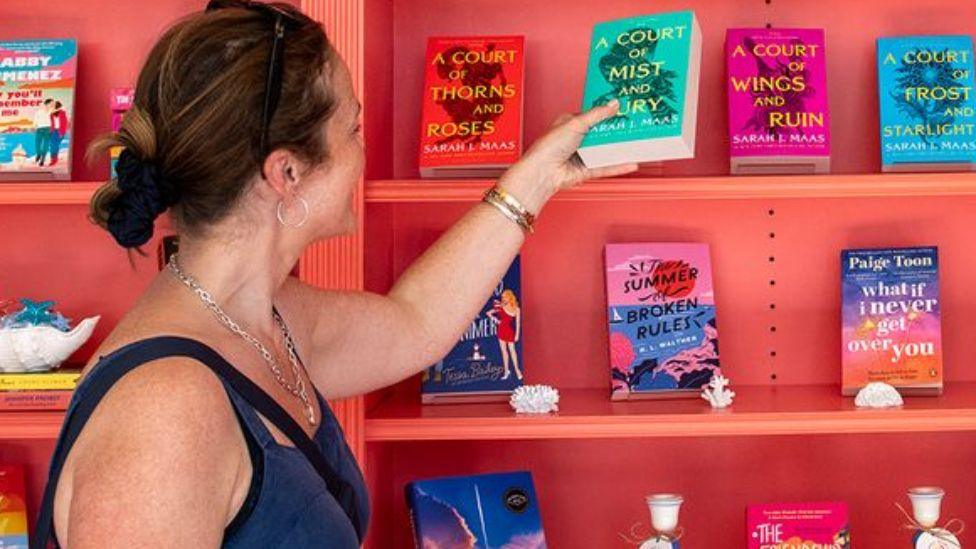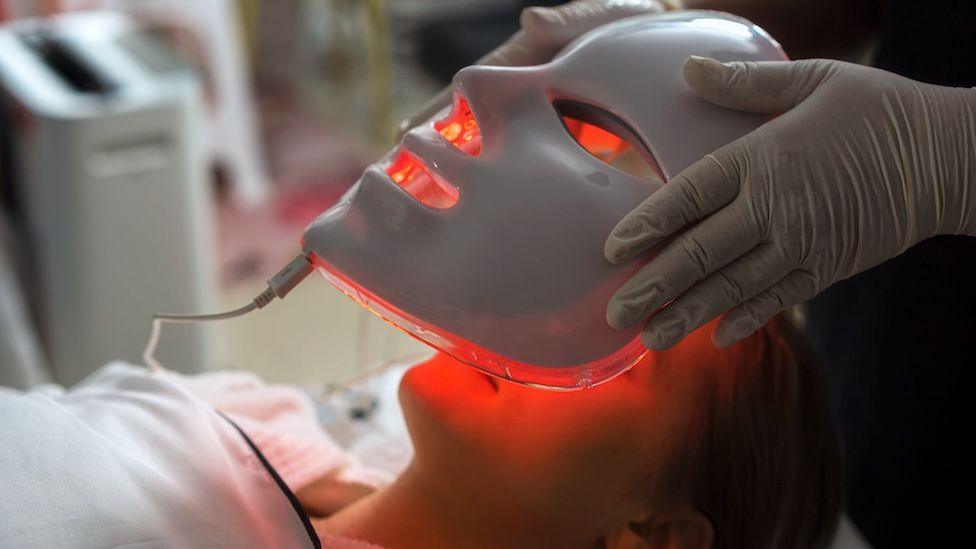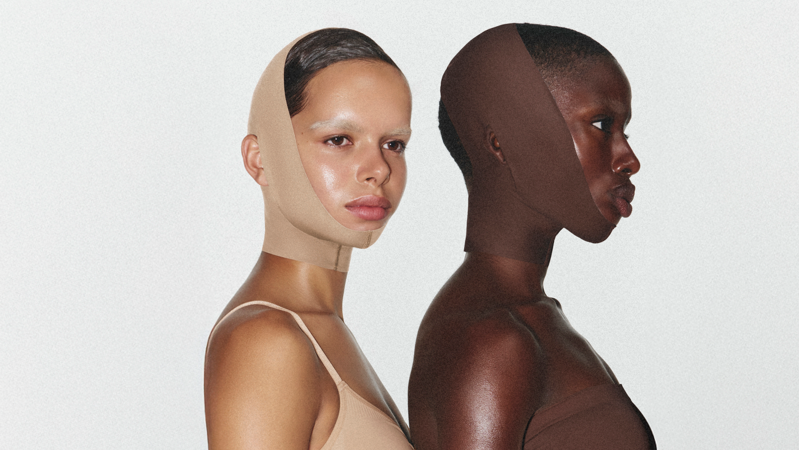Is waiting in a 12-hour queue the new cool thing to do? These people think so
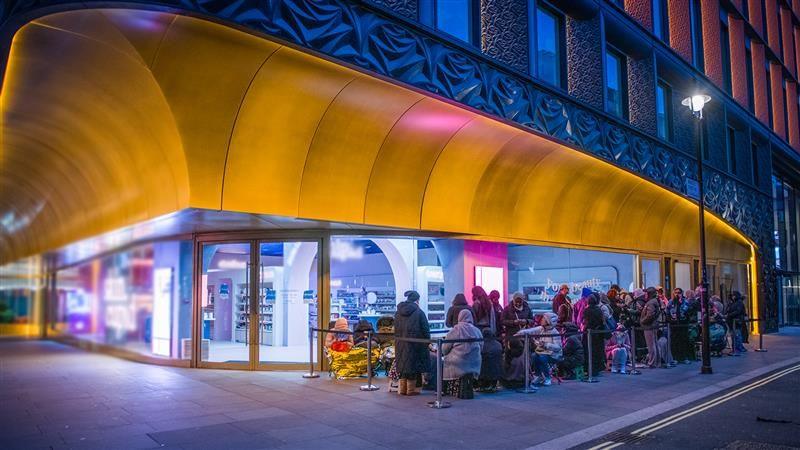
- Published
It's just before 06:00 on a Friday morning and on a busy central London street a queue is growing by the second.
It's dark and chilly, but I'm told the people at the front of this line have been here since 20:00 last night.
Christina Spence is waiting with hundreds of other people who want to be the first shoppers at Korean cosmetics retailer Skin Cupid's first store.
The 16-year-old, who is here with her sister and mum Cheryl, could just buy the products online - but she wants to be part of the queue.
"Queuing up is exciting and exhilarating - the build up of walking in, and thinking 'I'm finally here,'" Christina tells me.
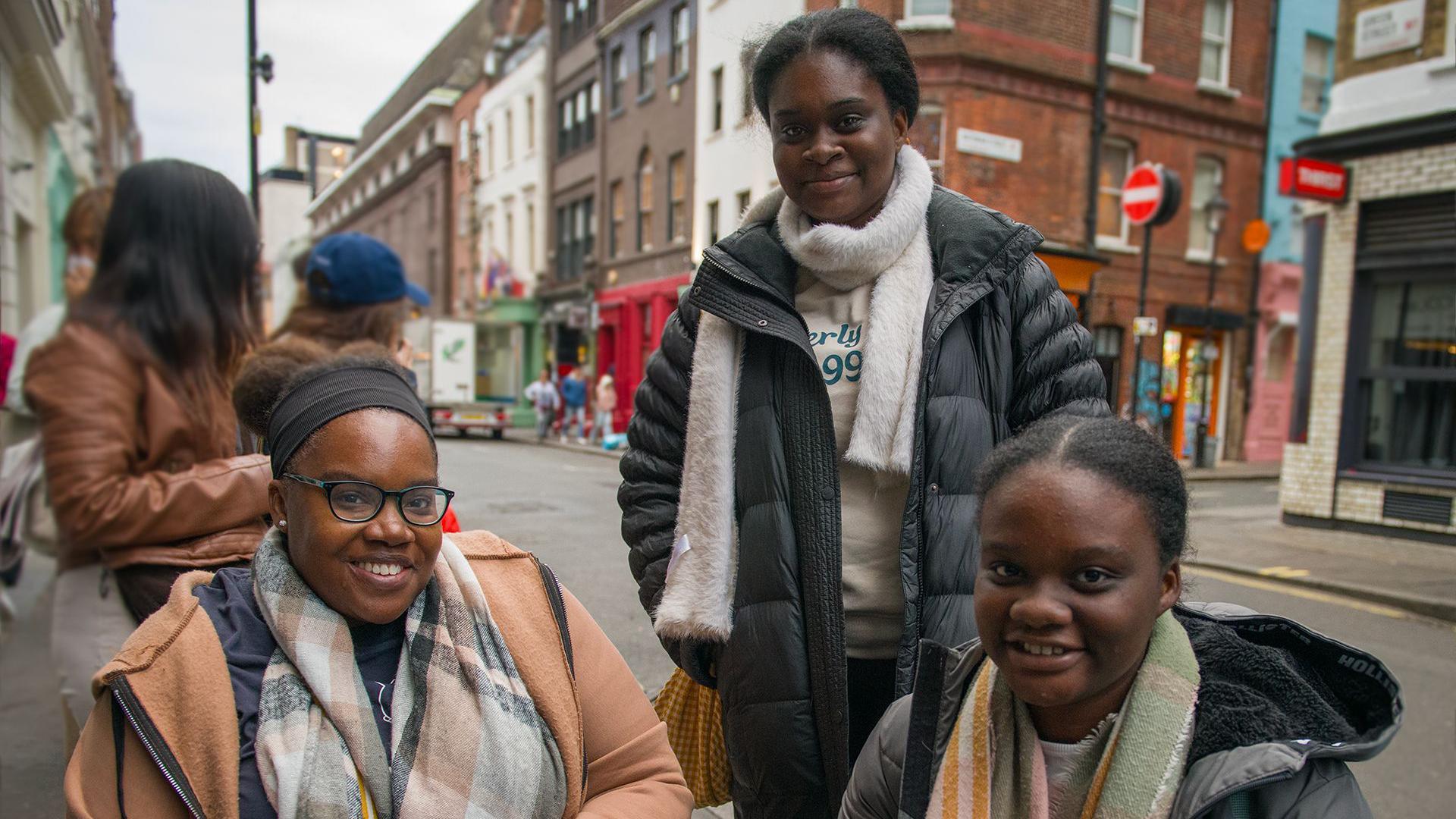
Christina Spence (seated on the right) enjoys queuing with her mum and sister
I'm not new to a queue myself. It's something I've done for years for Comic Con and book signings.
And queuing is almost synonymous with British culture. In the noughties, excited children waited outside bookshops for midnight launches of the latest Harry Potter adventure, while tennis fans camping overnight in the hope of getting into Wimbledon is a dependable sight every year.
But recently, queues seem to have had a rebrand. No longer an inconvenience or a barrier between you and what you really want to get to, queuing is becoming an activity in itself. But why?
'You get to make friends'
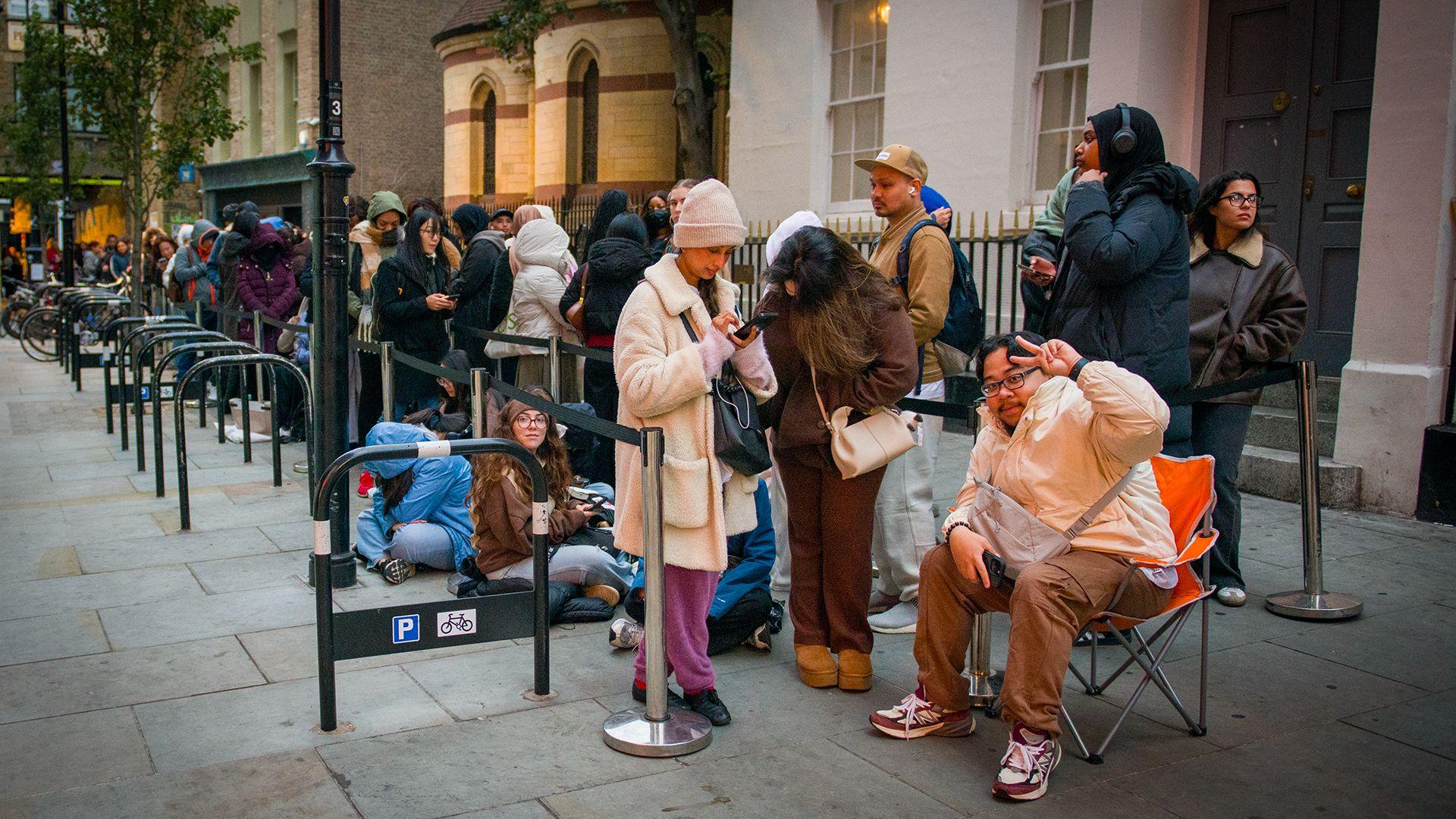
People start queuing in the early hours of the morning in central London
Twenty-six-year-old Maryam has been standing in line since 05:00.
"I get to meet new people and have a really nice time," Maryam explains, as she wraps her arm around someone she first met this morning.
This is only the second time Maryam has queued for an event like this. The first was for the opening of another Korean cosmetics retailer earlier this year.
"There's a sense of camaraderie - we're all here together," Cheryl tells me. She and her daughters will brave all weather for a queue, she explains, exchanging waiting stories with those in the line.
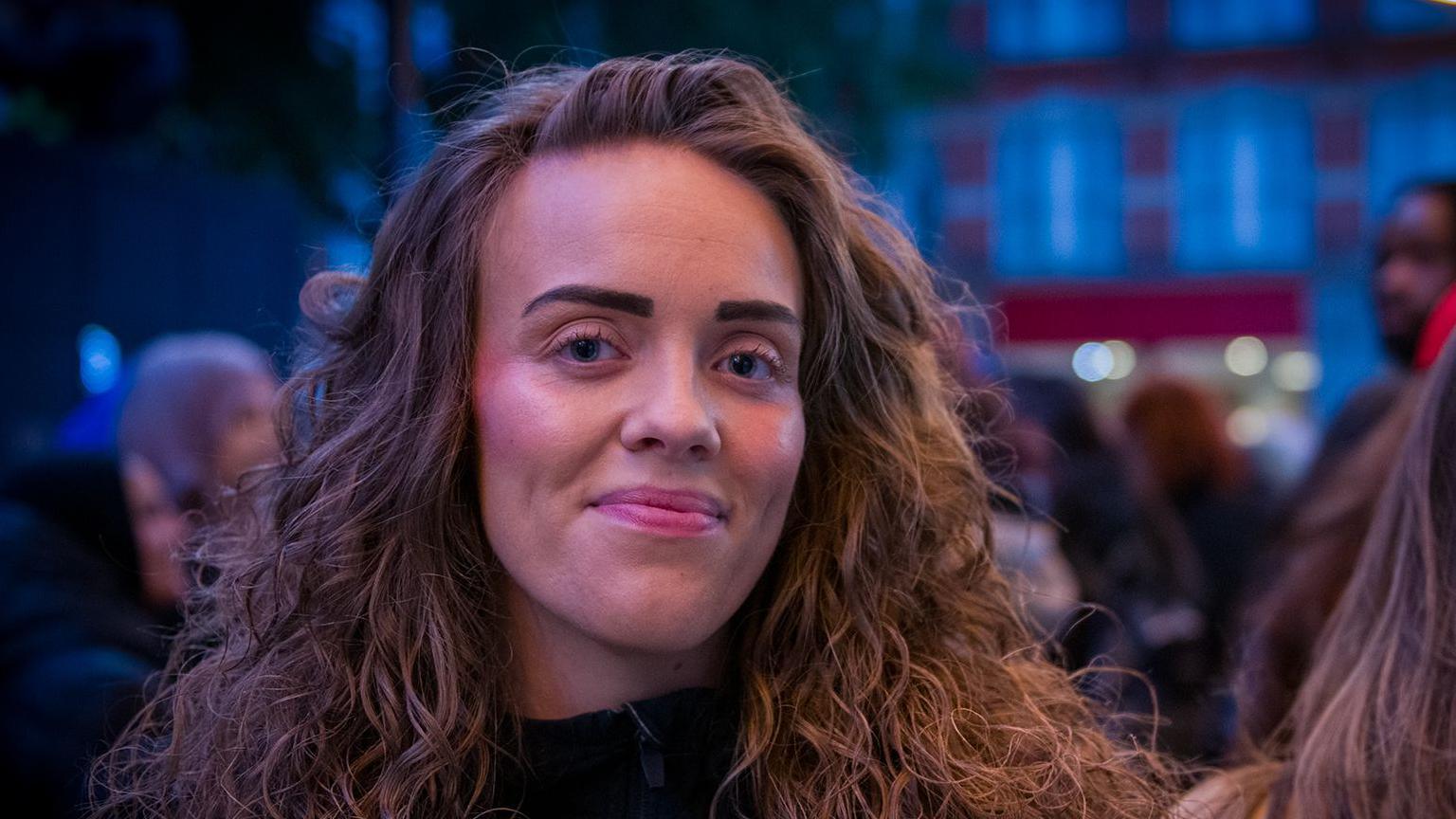
Shannon exchanges contact details with friends she makes in the queue
Others, like Shannon Louise Brown, have gone a step further by creating a "little community" with like-minded people.
Gesturing to the people next to her, the 26-year-old explains she is with people she met at previous queues and with whom she keeps in touch.
"It's really good to meet new people from different backgrounds," Shannon Louise says, "where a city is so big, here, you get to make and meet friends".
'People love the exclusivity'
Dr Nilufar Ahmed, a psychologist at the University of Bristol says the "anticipation" of what is to come when queuers reach the front of the line - the "reward" - plays a big part in why people do it.
Queuing for "pleasurable activities" - like shopping for luxury items, a bargain, or delicious food - creates a "distinctly different" feeling to queuing for something more mundane like buying your groceries, she says.
"The anticipation of receiving a reward leads to the release of dopamine... which makes us feel good."
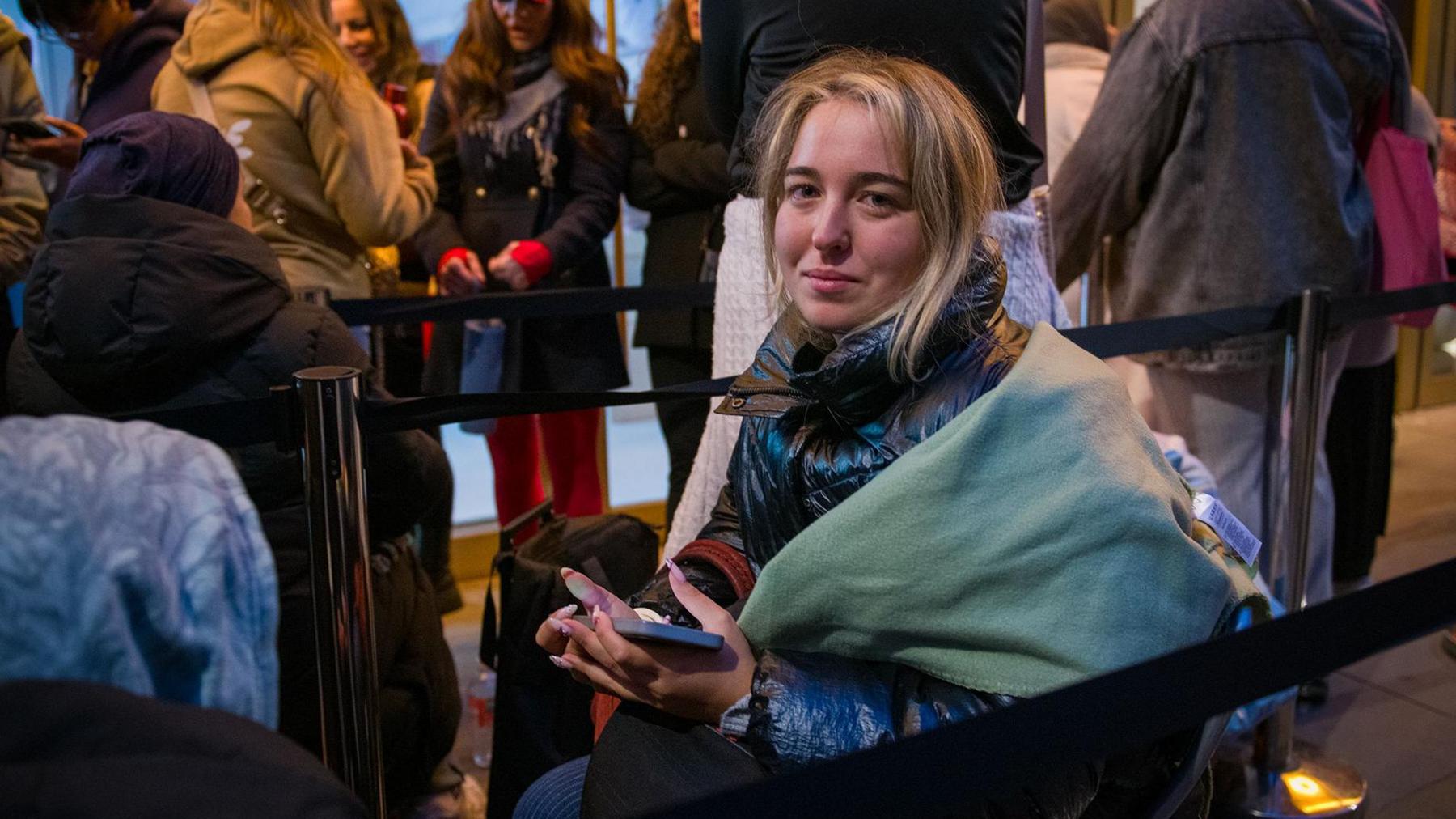
Dopamine is involved in the brain's reward system and is released in response to something pleasurable, which motivates us to do it again.
Adding to the appeal, Dr Ahmed adds, is when the queue is for something that is "hard to get", or if a person has the "opportunity to be one of the first people to experience something".
Recent examples of this include queues of people snaking around high streets to get their hands on limited edition Labubu plush toys - which are usually sold out online.
"[This creates] a sense of excitement and buzz for the novelty and exclusiveness of the reward," Dr Ahmed says.
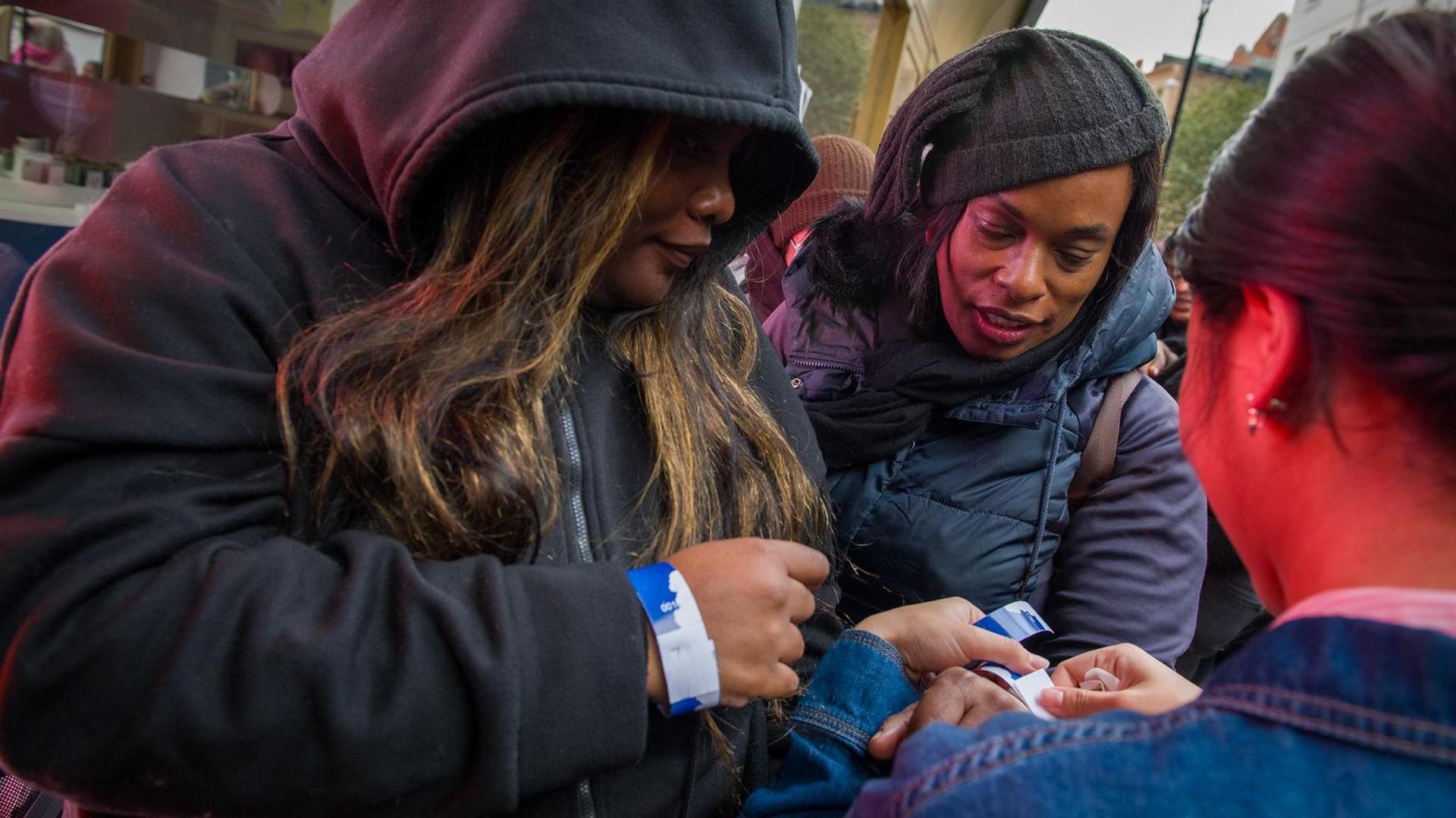
People receiving wristbands in the line
Brands are now trying to create queues and that feeling of exclusivity by tempting shoppers with free products, the chance to get their hands on hard to buy stock, and TikTok-worthy experiences.
Earlier this year, long queues formed outside Japanese clothing retailer Uniqlo's first store in Liverpool, where hundreds of shoppers were treated to a performance by Japanese drummers and received goodie bags.
And at a recent pop-up event for heritage brand Barbour during London Fashion Week, visitors received a free customised checked tote bag and a bouquet of dried flowers from a Scottish florist.
Experiences such as these are part of brands' increasing use of what's known as experiential marketing.
An Institute of Practitioners in Advertising (IPA) Bellwether report, external shows event budgets for this type of marketing have been growing at the fastest rate on record, with 23.1% of marketers increasing their budget, from 15.9% in early 2024.
Catherine Shuttleworth, founder of marketing firm Savvy, says this is becoming a "growing part of the overall marketing mix", something which is currently "very strong in the UK".
One reason these types of events have been growing in popularity is they provide opportunities for those attending to create social media content. And the queue itself - and how long it is - is often the content generator.
Content creator Nas Ganev says he has noticed people engaging more with experience-based content over the last year.
"People love the exclusivity and the feeling of being 'in the know,'" Nas says, "many go to film and post about it. They're fun, they're free, and they often come with cute goody bags - which my audience loves."
'Freebies are great'
For 31-year-old Phillipa Obisor it's the appeal of a complimentary gift which encourages her to stand in line.
"They're giving out free products - a whole bag of goodies," Phillipa, who is quite new to queuing, says, adding it's "fun" and so she'll do it again.
And while Phillipa's not alone in being tempted by the allure of free merch, for others, it's the experience as a whole that matters.
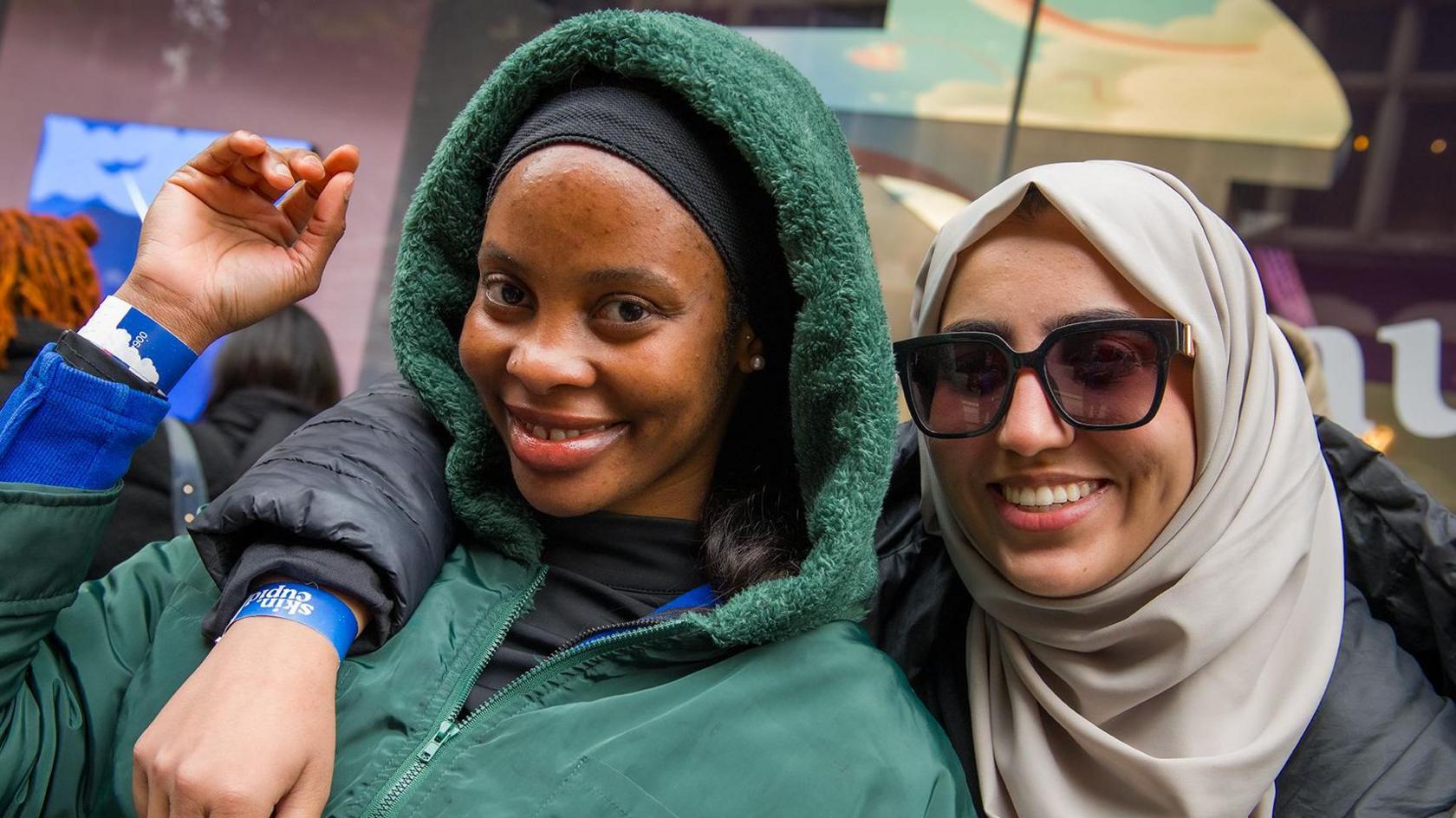
Phillipa and Maryam, who met in the queue
"Freebies are great," Tahira Jan tells me, "but it's more about how enjoyable something is."
Tahira's favourite queues have been for brands which "really think about their customer base, and make it really interactive and fun, so you'll have really immersive experiences". She gives the example of a Lego pop-up where people could build a flower made of plastic bricks and then take it home.
"But also, when there is a photobooth or games to play, it's so much more fun," she adds.
Millie Davison, a marketing manager from One Events UK - whose job it is to dream up queue-worthy events across Europe - says they're a way for brands to "cut through the noise and stand out".
"It's making them more memorable to consumers," Millie says, explaining that modern shoppers are "becoming bored with traditional media" and "want to be part of something".
Brands know this and are creating opportunities to show off their "uniqueness" in "a bid to appeal to their audience in an increasingly saturated market", she adds.
As I leave the queue, staff are handing out wristbands to the first 200 people in the line. These dedicated queuers will be able to pick up a goody bag with their purchase once the store throws open its doors.
Overall, people in this queue seem to have been having fun.
As Maryam says: "It's about good vibes."
Related topics
More weekend picks
- Published21 June
